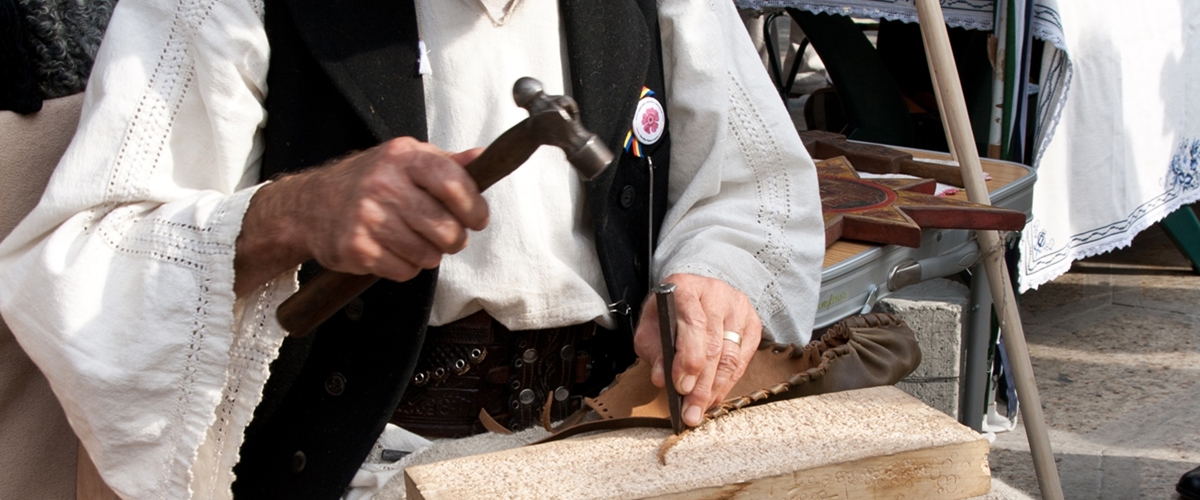The peasant's sandal maker- “opincar”
Opinci is a type of traditional footwear. The attributes of the “opinci” (name in plural) are a construction of leather, lack of laces, durable, and various endings on toes. They have been produced since pre-Dacian times and experienced a golden age when both men and women wore them.
Traditional shoes used to be made by hand from leather that was utilised at home. The leather component needed to be bigger than the sole and have openings on the side so that a thin string of leather could be inserted and wrapped around the foot to give it the appearance of some footwear. They would be put on top of white garments or wool stockings.
They are exclusively used today for folkloric dance ensembles, festivals, feast days, and other cultural occasions as part of folk costumes.
The local people hunted wild animals, especially foxes, deer, badgers, wolves, and bears, whose skins were used for processing, based on archaeological findings. The most noble people wore wild animal skins, while the poorest people wore cow or pig skins.
“Opinci”, however, are brought back to life every day at the Village Museum (“Muzeul Satului”) during folkloric concerts put on by artists who, of course, cherish and conserve the uniqueness of folk costumes and old traditions of the Romanian village.
“Opinci” create wonderful design items and interior accents suitable for decorating a home.
Sadly, this piece of traditional clothing died along with The Opinci Factory from Hârlău, which functioned throughout the period between the wars.
A pair of “opinci” is made manually over a period of approximately three days using cowhide. Opincarii (the peasant's sandal maker) make use of hammers, pliers, and “falţî”. The procedure is time-consuming as well as in order for the hide to take the shape of the leg, it is pulled over the capta (a wooden form). The leather is then pierced with holes.
Brown and black are the most common colours, either separately or combined.
Probably the last of the "opincari" in Romania are Iosif Trifuţ from the Apuseni Mountains and Alexandru Ilinca from Oltenia.




.png)



